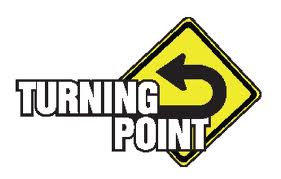 Surviving in a Dangerous Environment
Surviving in a Dangerous Environment
In the first two parts of the series, we have looked at the slow and progressive evolution into a frightening relationship, where the abuse continues and escalates, but the enabler-victim still holds out hope. In Part III, we’re looking at her efforts to survive in the midst of ongoing pain.
After who-knows-how-many months or years of tolerating or rationalizing abuse, the enabler-victim has almost accepted that this kind of relationship must be normal, or that she deserves whatever she receives. Still, there is a nagging sense that something is terribly wrong. She is tired of hurting but she hasn’t given up hope yet.
Still, she becomes increasingly disillusioned when the abuser’s behaviors don’t improve. In fact, oftentimes the abuse intensifies, or the episodes of shame, name-calling or terrorizing come in waves. She may think things are going pretty well when she is suddenly put into her painful place again. Will this insanity ever end?
The abuser’s anger and domination begins to consume other areas of her life and relationships. The abuser may begin to question how his victim spends her time and with whom. He may tightly control the finances and question her expenditures or become increasingly intimidating or aggressive physically or sexually. He may subtly (or maybe not so subtly) try to isolate his wife from friends, family and other sources of emotional and spiritual support. He ridicules others in her circle of friends. Why would you waste time with them? Or he may openly demand that she cease contact with certain people or refrain from activities or outings that she traditionally enjoys. It is another area where she may try to submit to him in hopes that he will eventually loosen the reins. By accommodating him, she ends up feeling even more lonely and dependent on him.
An abuse victim begins to live in a constant state of fear and confusion. Odds are good she is in a habit of giving herself a pep talk before she walks in the door of her own home. Maybe, she hopes, today will be different. She tries to avoid any situation that might subject her to abuse. She doesn’t want to say anything that he might find controversial or open her up to condemnation.
With each new day, she tries to believe the best, does all within her power to hold her family together. She prays and waits eagerly for change. She rehearses conversations she needs to have, hoping that if she uses just the right words, this time he’ll hear her.
The victim wonders:
Why is he so mean to me?
Why is he angry all the time?
Why can’t I have a normal conversation with him?
Why is everything my fault?
What can I do to get him to love and appreciate me?
What happened to the man I loved?
See Part IV
Copyright 2010 All Rights Reserved





